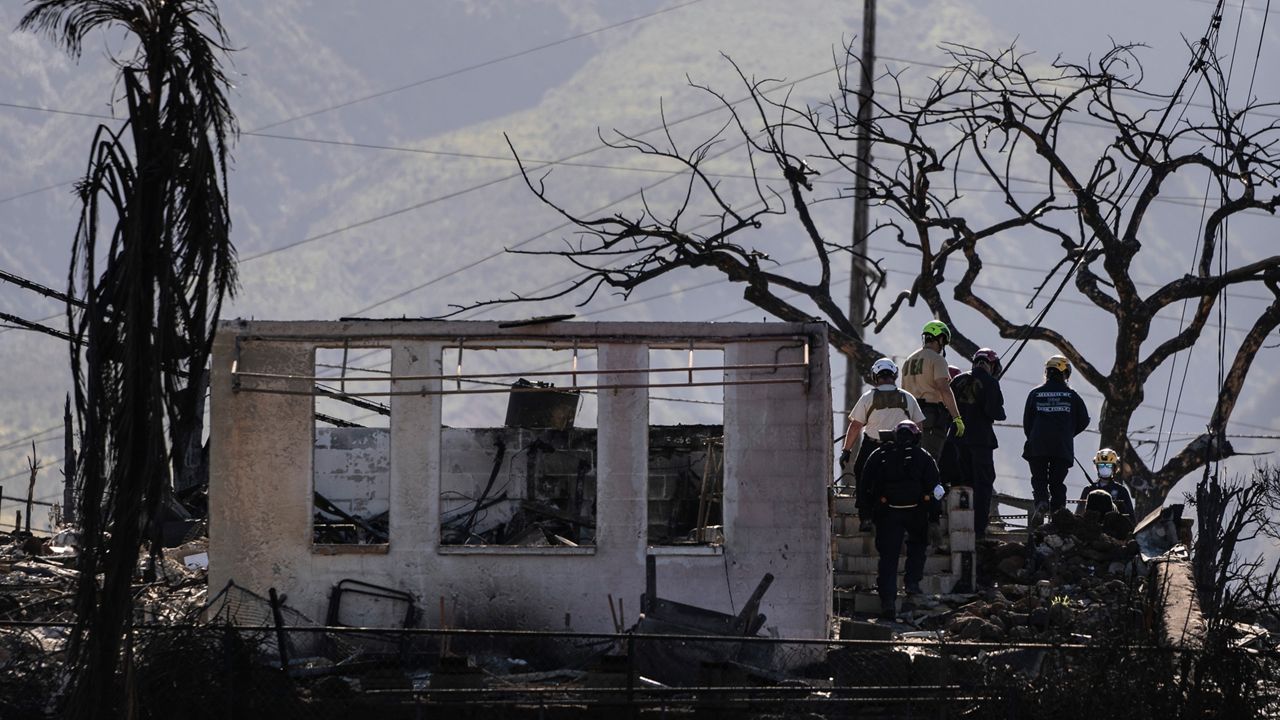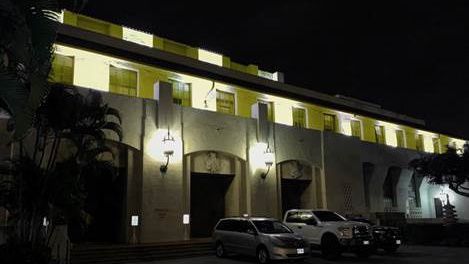The state has launched a new program to help those affected by the Maui wildfires to secure housing and other needs through individualized case management.
Gov. Josh Green and the state Department of Human Services announced the interim Disaster Case Management Program on Monday following initial approval by the Federal Emergency Management Agency. The program will link those in need with specially trained case managers who will assess and address their needs through a disaster recovery plan, which includes resources, decision-making priorities and providing guidance and tools.
“My top priority as governor continues to be ensuring that the survivors of the Maui wildfires are getting the support they need,” said Green. “This interim Disaster Case Management program will enable us to better help survivors as they navigate their path toward recovery and will streamline the many resources available.
At Green’s request, the American Red Cross is providing funding to launch the interim program and maintain services for 90 days. The funding will cover 20 case managers, who will support up to 700 individuals.
According to the governor’s office, a FEMA-supported DCMP will then expand to provide support to all survivors for up to two years.
“The survivors in our care remain our number-one priority,” said Red Cross Director of Wildfire Long-Term Recovery Programs Amanda Ree. “The Red Cross is proud to be funding this initial phase of disaster case management, as it adds one more tool to a survivor’s toolbox. This investment helps speed up the recovery process for all survivors and is in line with our intention to empower local entities to lead the recovery of their own community. Our volunteers, disaster workforce and long-term recovery team will continue to support everyone in our care while building the capacity of local partners in these communities.”
DHS has partnered with the nonprofit Society of St. Vincent DePaul to provide case-management training via Catholic Charities Hawaii, Family Life Center and Family Promise of Hawaii.
The program builds on the Green administration’s efforts to ensure housing and resident transition support through the non-congregate sheltering program.
The interim DCMP will extend services to individuals who need them and are not currently receiving support through the NCS program.
Survivors who will receive services via the interim DCMP will be contacted directly by either their currently assigned American Red Cross Shelter resident transition specialist or, for those eligible who reside outside of the NCS hotels, by a disaster case manager to begin assessing needs and providing disaster recovery services. Disaster case managers will also be able to assist survivors who speak English as a second language.
Green said services will focus on providing support to those in NCS accommodations and who have been determined ineligible for FEMA benefits.
“The survivors of the Maui wildfires continue to need our help, and the Department of Human Services is proud to provide this essential Disaster Case Management service. Working together, we will be able to provide survivors with the critical support they need to recover, rebuild, and heal,” said DHS Deputy Director Trista Speer. “We are grateful to Governor Green for his leadership in prioritizing this assistance and moving quickly to launch the program, and we look forward to working with our partners to continue providing the resources our community needs.”









